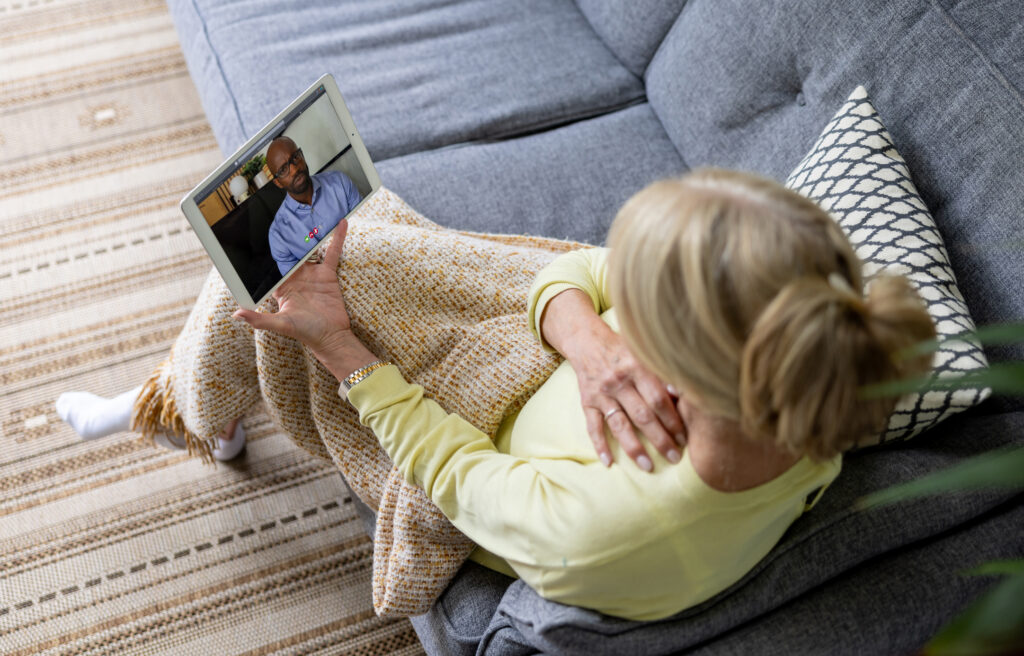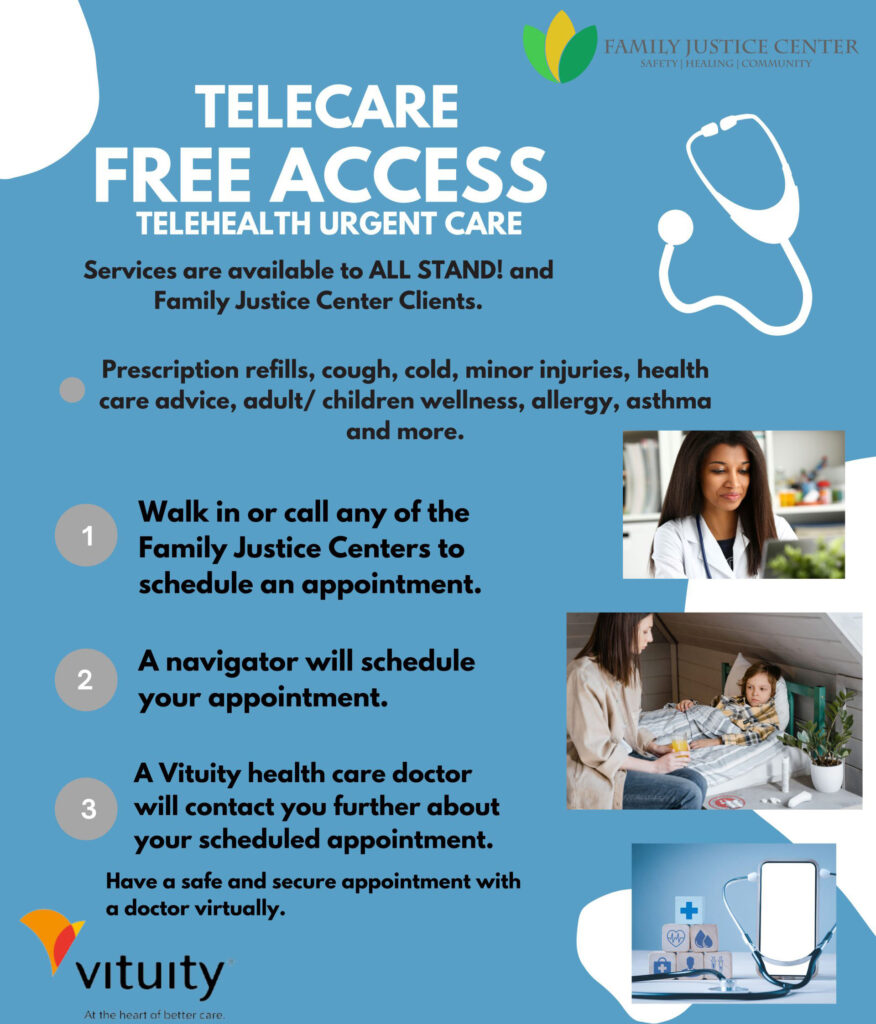Novel program connects domestic violence survivors with healthcare in Antioch

TeleCARE improves access to care, resources through video visits
by Monique Binkley Smith, Media Relations Manager, Sutter Health
The distraught woman arrived at an Antioch, California hospital emergency department with nothing: Her car, wallet and cell phone were stolen by her abusive boyfriend. She was treated for her injuries, but many victims of interpersonal violence can’t or won’t go to the hospital because they are afraid, lack access to transportation or childcare or, like the woman, their abuser has taken their ID.
And the problem goes beyond accessing care for injuries. Many interpersonal violence survivors and their children haven’t been seen by a doctor for preventive care or for treatment of a chronic condition such as high blood pressure, diabetes or asthma.
That’s where a unique collaborative telehealth service in Contra Costa County, called TeleCARE, comes in. The program safely connects survivors of interpersonal violence with the healthcare services they desperately need including medical care, mental health counseling, prescriptions and even dental care –all at no-cost to the patient.
Now in its fourth year, TeleCARE was founded by Dr. William Francis, a Sutter Delta Medical Center emergency medicine physician with Emeryville-based Vituity medical group, and Contra Costa Family Justice Center.
“At Contra Costa Family Justice Center, our priority is to help get people to safety. Once they’re safe, we’re able to connect them through the TeleCARE program to the healthcare services they and their children need. Whether it’s for traumatic injuries suffered at the hands of their aggressor or addressing long-term health issues, TeleCARE can help,” says Susun Kim, director of Contra Costa Family Justice Center.

Dr. Francis developed TeleCARE as a way to provide convenient –and safe— access to healthcare for people he treats in the emergency department for injuries sustained at the hands of their aggressors but who also need preventive care and treatment for illnesses and chronic medical conditions. And he wanted a way to offer care to survivors who were too frightened to come to the hospital at all.
“The goal of TeleCARE is to improve healthcare for people suffering interpersonal violence with no need for proof of insurance or requirement for ability to pay before connecting them with a clinician,” says Dr. Francis. “These are people who have immediate need of care for injuries or illnesses but who also often need care to manage their chronic conditions. It can be extremely difficult for them to access care in the traditional model because their aggressor prevents it.”
Dr. Francis says many survivors of interpersonal violence refuse to be taken to the hospital by ambulance when in distress, often because they lack childcare or because of the cost on top of the fear of potentially being revictimized by their aggressors.
Now, instead of just hoping survivors get the care they need, even if they refuse transport to the hospital, Contra Costa EMS responders give them a TeleCARE business card so they can arrange for a video visit with a provider when it’s safe for them to do so.
Seven private and public organizations in Contra Costa County now provide support to TeleCARE through the Green Light Collaborative. Thanks to this broad-based community support, TeleCARE has expanded its offerings to help survivors solve problems like obtaining prescriptions for themselves and their children and finding reliable transportation to work.
Dr. Francis is quick to point out how pervasive—and devastating—interpersonal violence is, with widespread impact on the entire community, especially as a primary cause of homelessness. The National Coalition Against Domestic Violence reports one in three women and one in four men have experienced interpersonal violence from a partner, and according to the National Network to End Domestic Violence, domestic violence is the leading cause of homelessness for women and their children.
“I’m so proud that as a physician practicing at Sutter, my colleagues and I are part of a network that works collaboratively with the community. Together, we can tackle the array of areas where we can improve access to care for underserved populations like survivors of domestic violence,” says Dr. Francis.
TeleCARE is made possible through grant funding, making the program rare, if not entirely unique, in its reach, accessibility and scope of collaboration throughout Contra Costa County. Part of the not-for-profit Sutter Health network of care, Sutter Delta Medical Center works to improve outcomes beyond its walls through investment in community partnerships and programs such as TeleCARE and the Green Light Collaborative.
Need help? County residents can access TeleCARE on-site at Contra Costa Family Justice Center, or call one of three Family Justice Center locations in Contra Costa County for an appointment:
Antioch: (925) 281-0970
Concord: (925) 521-6366
Richmond: (510) 974-7200
the attachments to this post:

Sick woman satying at home and talking to her doctor online



























